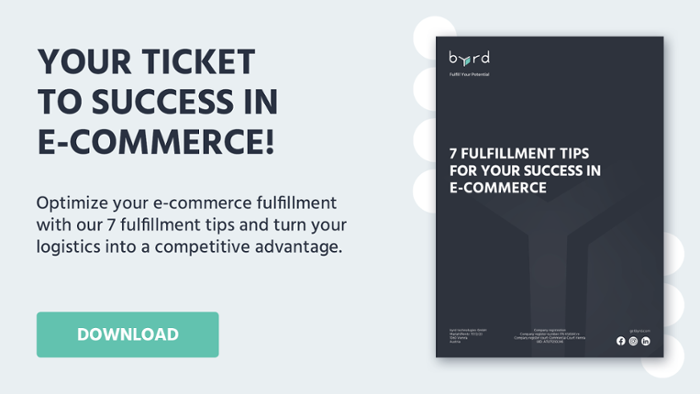plentymarkets
Table of Content
Do you work in an e-commerce company that sells ever-larger quantities and is therefore no longer one of the small fish? Congratulations on that! But as shipping volumes increase, so does the associated workload. Eventually, coordinating the various processes becomes practically unsolvable. The search for efficient solutions, such as ERP systems, is the logical step forward. One of the providers of such software is plentymarkets.
plentymarkets is an all-in-one e-commerce ERP for multichannel sales. Thanks to extensive functions and interfaces, the online-based software can be used to fully automate the entire online and offline retail process.
But what are the advantages and disadvantages compared to the other shop system competitors? To give you a better overview and simplify your decision-making process for choosing the best ERP solution for your e-commerce business, we have summarized the pros and cons of plentymarkets.

Advantages of plentymarkets
Cloud-based
plentymarkets is a cloud-based solution for e-commerce merchants. Its services are offered in a so-called SaaS (software as a service) model. This means the monthly (or yearly) payments are fixed. Consequently, costs can be planned well ahead and there are no nasty surprises.
Scalable in the cloud
Cloud solutions also allow you to scale your system without the problems that are typical with on-premise solutions.
Automation saves money
As in many other areas of online commerce, such as logistics, automation is a way to save time and money, especially when it comes to ERP systems. plentymarkets is a good help in this regard.
Customizable for your requirements
Interfaces
One of the German company's primary selling points is its numerous and seamless interfaces. With plentysystems, you have access to over 150 sales channels worldwide. From large platforms, such as Amazon or eBay, to industry-specific, local and specialized marketplaces. This enables online retailers to have a simple and broad multichannel presence. The same applies to payment providers and price comparison portals.
Having a well-integrated 3PL interface is paramount as you keep an overview of your fulfillment processes. Last but not least, the most important tools for online businesses are also integrated. These include order management and inventory management systems, as well as PIM, and CRM.
Frontend
As far as the front-end is concerned, plentymarkets is on par with larger e-commerce platforms. In addition to standard functions like the possibility to create categories, tags, and the like, plentymarkets offers a helpful search function. This helps to offer a pleasant customer experience.
Hosting & Safety
Together with AWS, the world's leading hoster for cloud products, plentysystems offers a powerful package. A big advantage is that updates, security patches, and new software updates are performed automatically. This means that you are relieved of one worry. According to plentymarkets, only high-quality and modern servers are used, which leads to faster loading times. On the one hand, this is important for the customer experience, and on the other hand, this will also be taken into account as a ranking criterion by Google from May 2021.
Suitable for medium and large e-commerce companies
It is precisely for the aforementioned reasons that plentymarkets enjoys great popularity, especially among medium-sized and larger customers.
plentyShop
The flexible, cloud-based store system is clearly laid out, perfectly connected and contains all the tools for a successful online store. An easy-to-use, codeless drag-and-drop editor offers design options for all store pages and enables immediate availability of customizations.
- Good set-up for SEO (search engine optimization)
- Customizability
- Designs
- Focus (B2B or B2C)
- Connection to 40+ sales platforms
- International setting
- Multiple languages
- Multiple Currencies
- Interactivity
- Wishlist, Smart Search, etc.
- Trust-building
- Includes reviews
- Various certificates
- Facilitates communication
- Social Share buttons
- Connection to e-mail marketing systems
- An offer of a wide range of Webinars and educational content

Disadvantages of plentymarkets
Relatively large effort for small stores
Setting up and maintaining the site usually dictates a necessity to invest huge amounts of resources at the beginning, which might not be a feasible option for all webshops. This holds especially true for smaller online stores. Even though this often pays off in the long run, online retailers should be aware of this fact.
Having experience as a webmaster, or cooperating with an agency is necessary
The previously mentioned high expenditure of resources is mainly due to the not-so-intuitive control of the ERP solution. For this reason, in most cases, experience as a webmaster or cooperation with an external agency is necessary. Howbeit, monthly workshops, help on the plentymarkets forum, and setup support are available. The latter, however, is subject to a fee and can be booked via the backend, if needed.
Support for a fee
In addition to the aforementioned paid setup support and unlike some competing products, telephone support is also not free with the German all-in-one store solution.
Dependency for extensions
Another, often decisive, disadvantage is that users are dependent on the operator for extensions.
Advantages and disadvantages of plentymarkets at the same time
Backend
The administration backend is the heart and brain of every webshop. Among other things, products are set and updated here. plentymarkets' backend has both advantages and disadvantages over its competitors. First of all, the control is not as intuitive as elsewhere. On the contrary, some functions seem rather complex at the beginning. This is because plentymarkets is not just an online store system, but rather a solution that covers almost all the functions of a store. This also includes merchandise management, warehouse management, and numerous connections, for example, to fulfillment partners such as byrd, who also offer a plentymarkets fulfillment integration. If you are willing to invest some time to get used to it, the initial complexity will increasingly become an advantage of plentymarkets. By the way, numerous tutorials and explanatory videos will help you with this.

Conclusion
Overall, plentymarkets is an extremely powerful store solution for e-commerce merchants. Due to the relatively high setup hurdles and the not quite as intuitive operation compared to other shop systems like Shopify or Shopware, the ERP system is more suitable for growing medium-sized and established e-commerce companies.
The higher expenditure is justified by good interfaces, qualitative hosting, and high security. If you decide in favor of the German cloud-based software solution, there is nothing to stop you from scaling.
